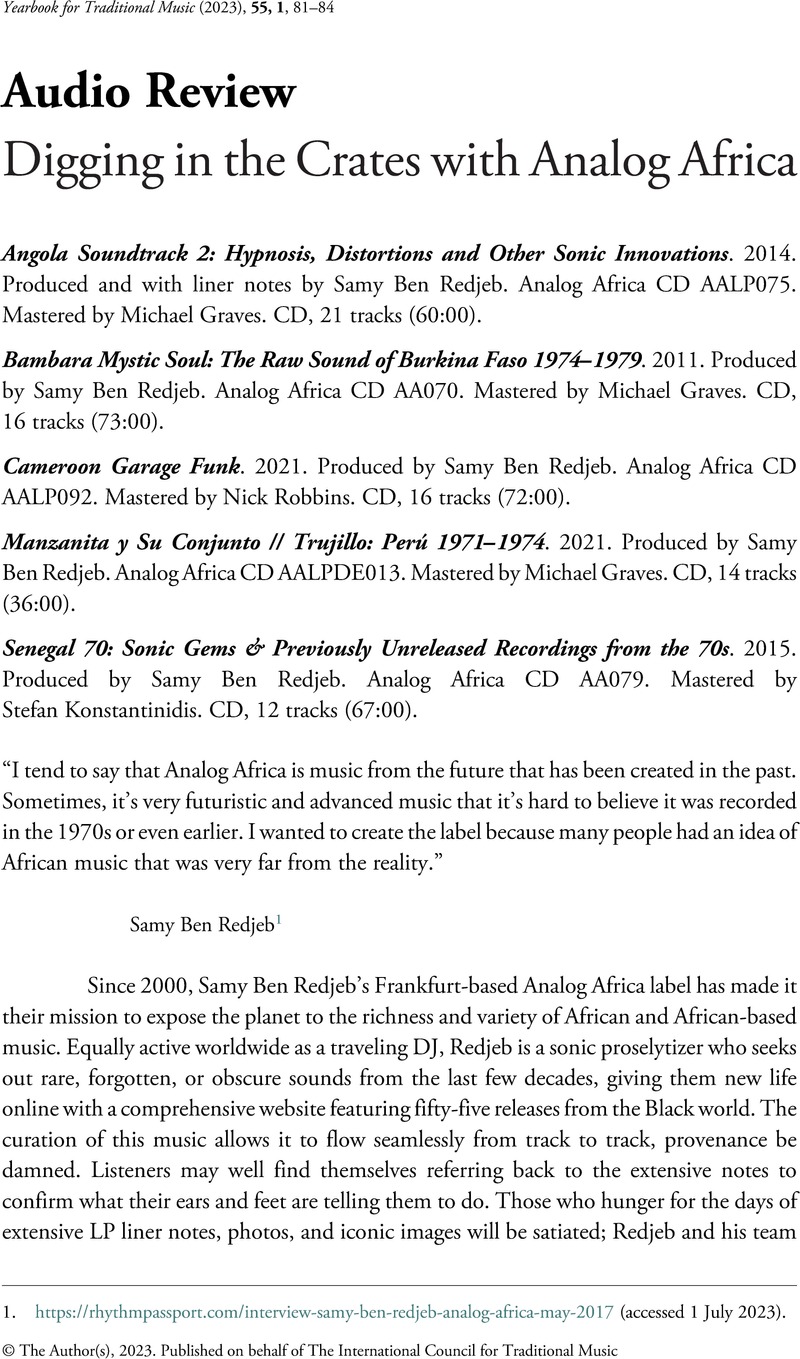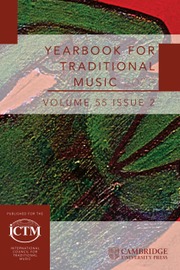No CrossRef data available.
Article contents
Digging in the Crates with Analog Africa - Angola Soundtrack 2: Hypnosis, Distortions and Other Sonic Innovations. 2014. Produced and with liner notes by Samy Ben Redjeb. Analog Africa CD AALP075. Mastered by Michael Graves. CD, 21 tracks (60:00). - Bambara Mystic Soul: The Raw Sound of Burkina Faso 1974–1979. 2011. Produced by Samy Ben Redjeb. Analog Africa CD AA070. Mastered by Michael Graves. CD, 16 tracks (73:00). - Cameroon Garage Funk. 2021. Produced by Samy Ben Redjeb. Analog Africa CD AALP092. Mastered by Nick Robbins. CD, 16 tracks (72:00). - Manzanita y Su Conjunto // Trujillo: Perú 1971–1974. 2021. Produced by Samy Ben Redjeb. Analog Africa CD AALPDE013. Mastered by Michael Graves. CD, 14 tracks (36:00). - Senegal 70: Sonic Gems & Previously Unreleased Recordings from the 70s. 2015. Produced by Samy Ben Redjeb. Analog Africa CD AA079. Mastered by Stefan Konstantinidis. CD, 12 tracks (67:00).
Review products
Angola Soundtrack 2: Hypnosis, Distortions and Other Sonic Innovations. 2014. Produced and with liner notes by Samy Ben Redjeb. Analog Africa CD AALP075. Mastered by Michael Graves. CD, 21 tracks (60:00).
Bambara Mystic Soul: The Raw Sound of Burkina Faso 1974–1979. 2011. Produced by Samy Ben Redjeb. Analog Africa CD AA070. Mastered by Michael Graves. CD, 16 tracks (73:00).
Cameroon Garage Funk. 2021. Produced by Samy Ben Redjeb. Analog Africa CD AALP092. Mastered by Nick Robbins. CD, 16 tracks (72:00).
Published online by Cambridge University Press: 13 December 2023
Abstract
An abstract is not available for this content so a preview has been provided. Please use the Get access link above for information on how to access this content.

- Type
- Audio Review
- Information
- Copyright
- © The Author(s), 2023. Published on behalf of The International Council for Traditional Music
References
1. https://rhythmpassport.com/interview-samy-ben-redjeb-analog-africa-may-2017 (accessed 1 July 2023).


